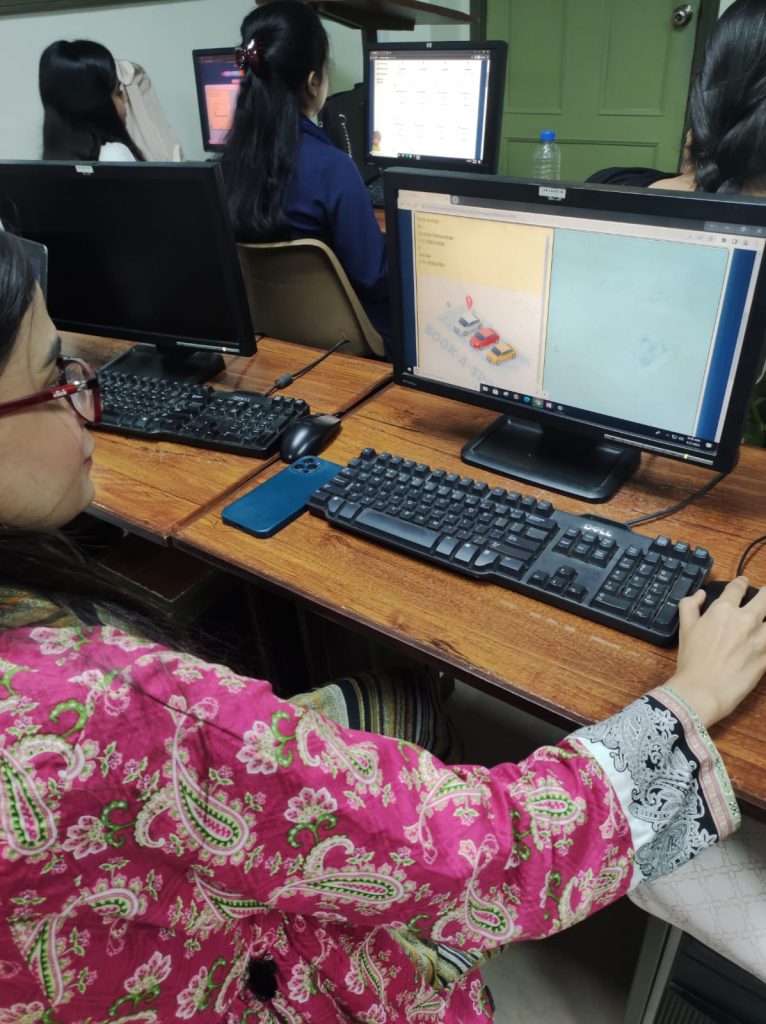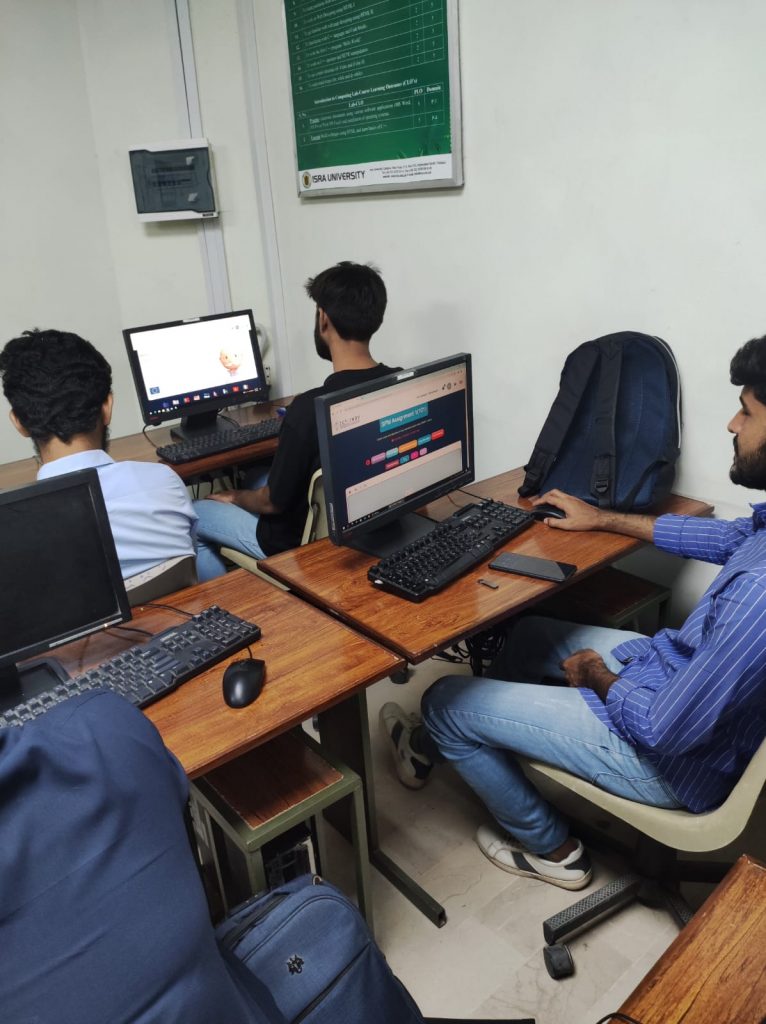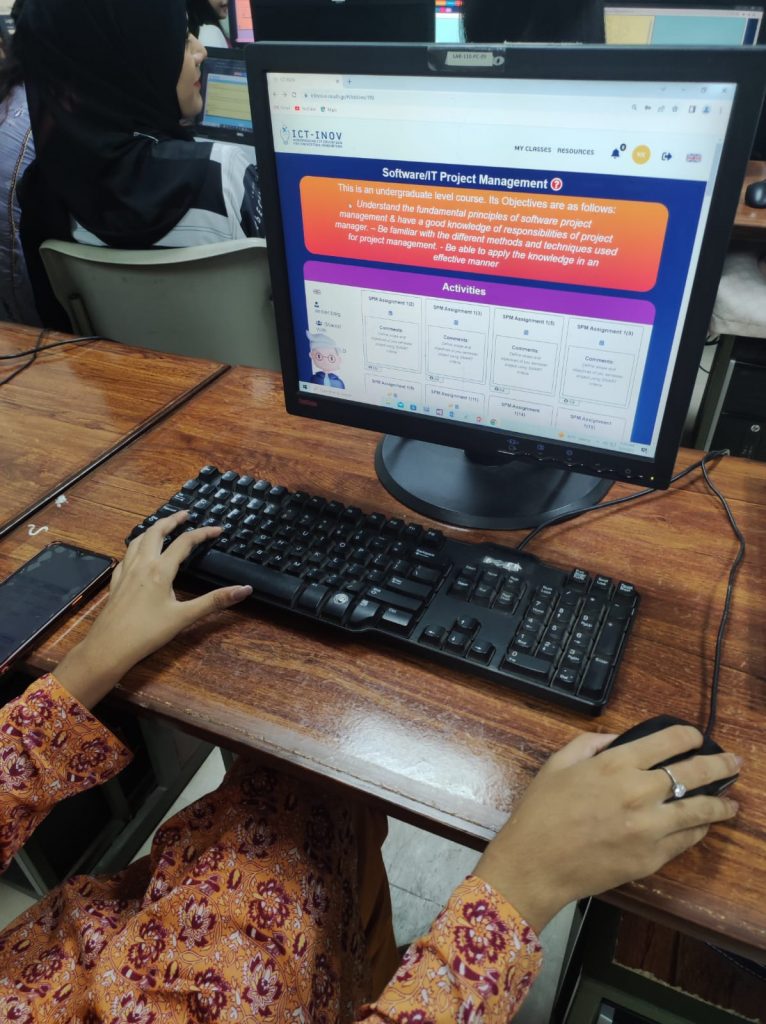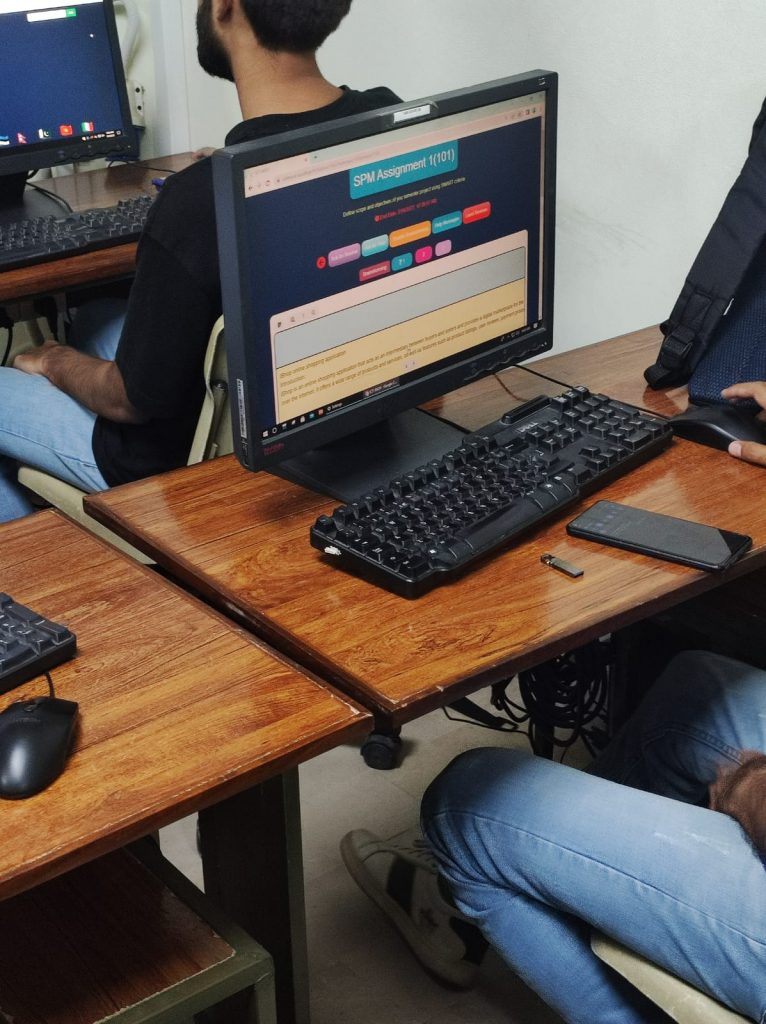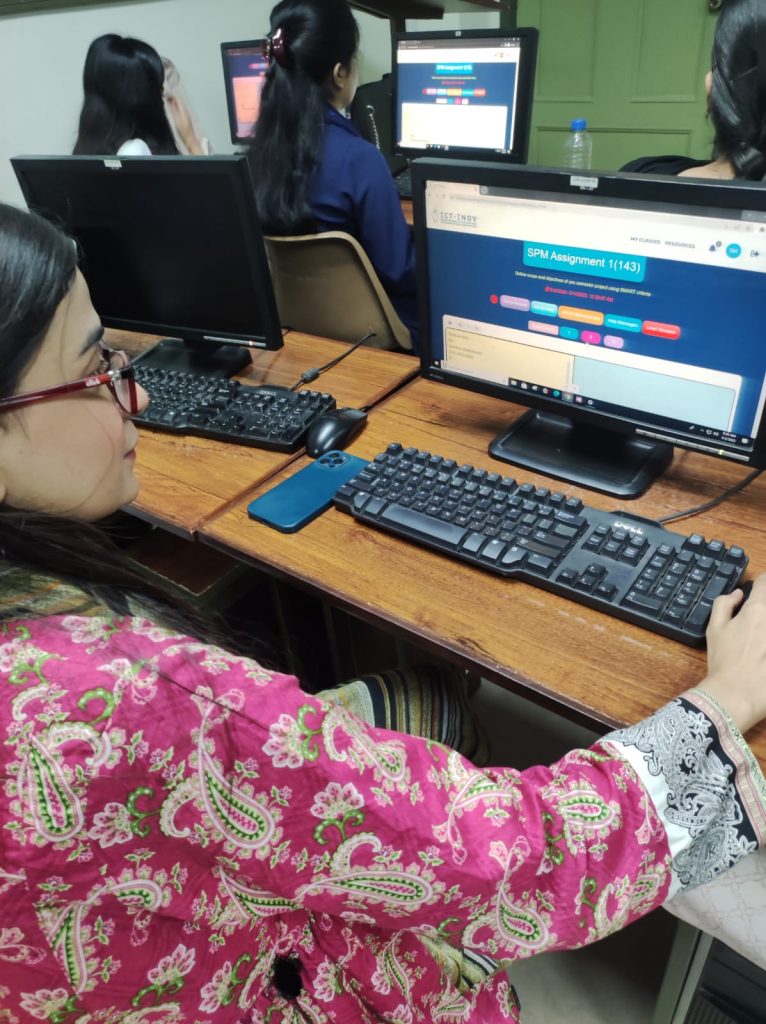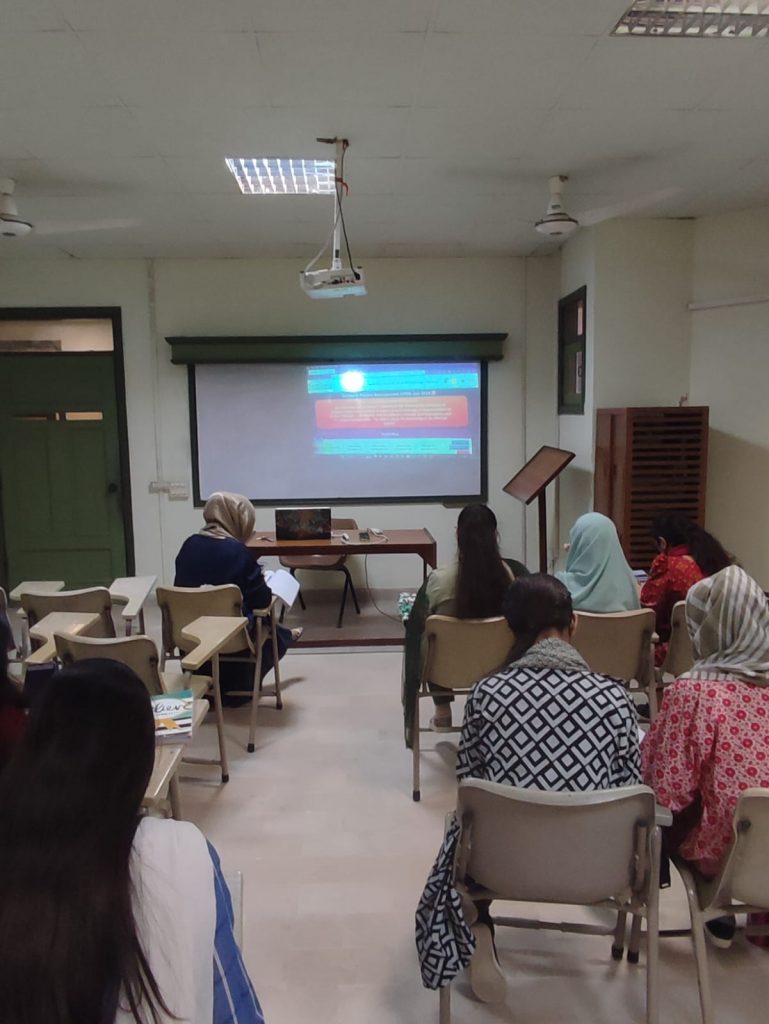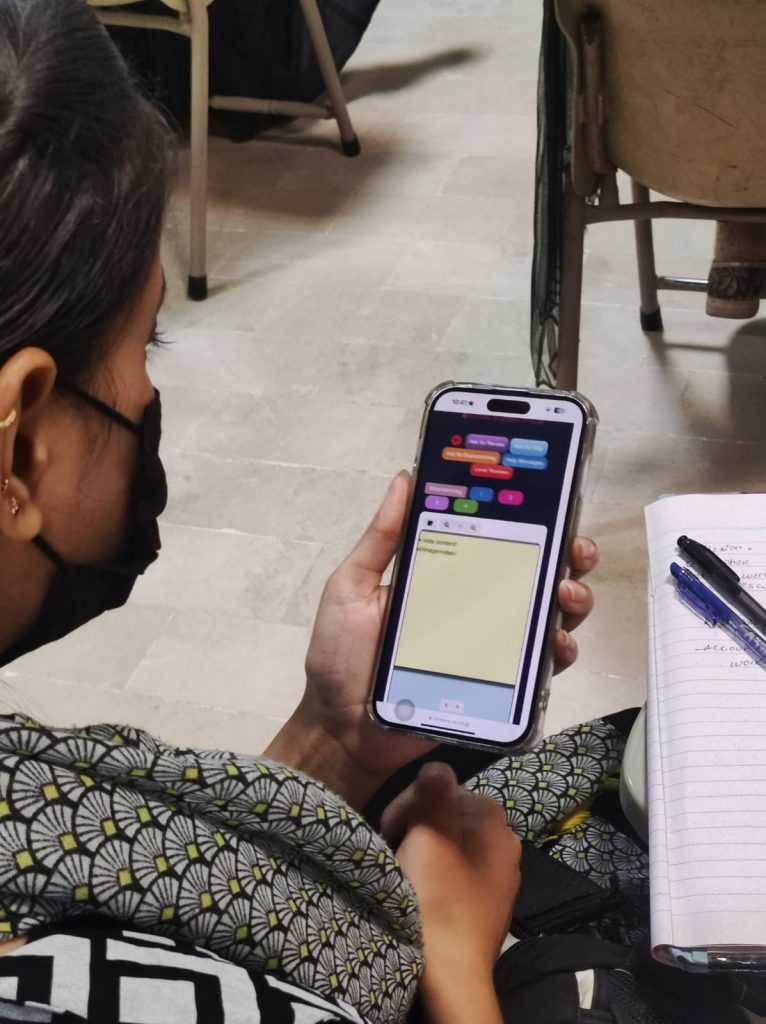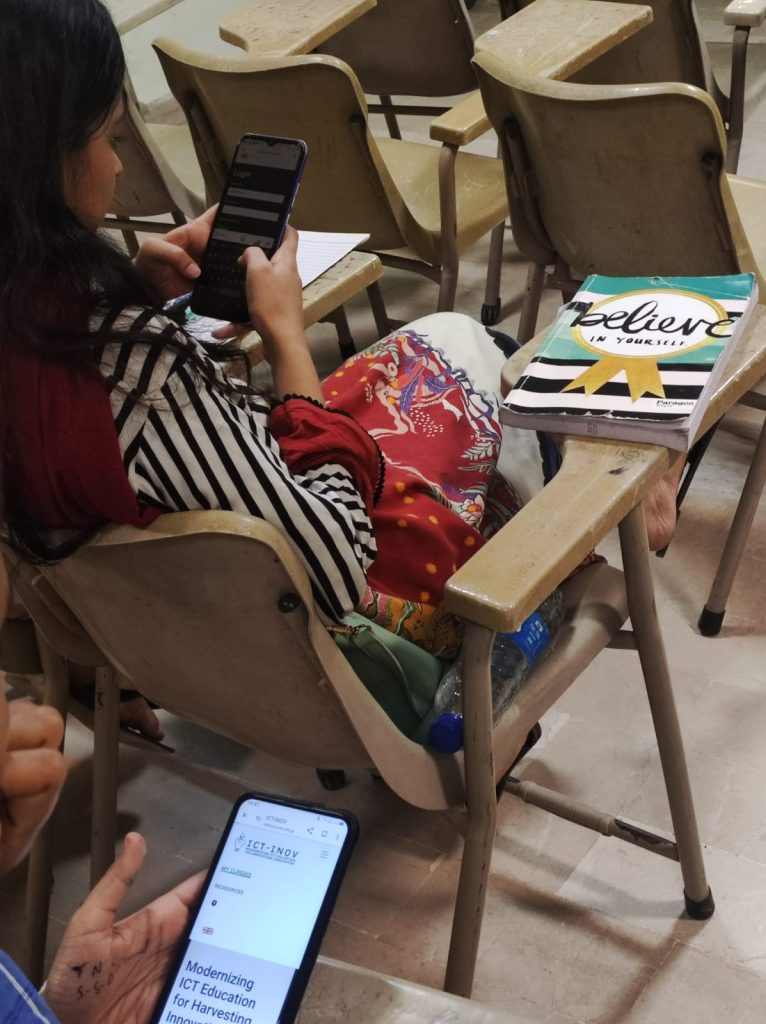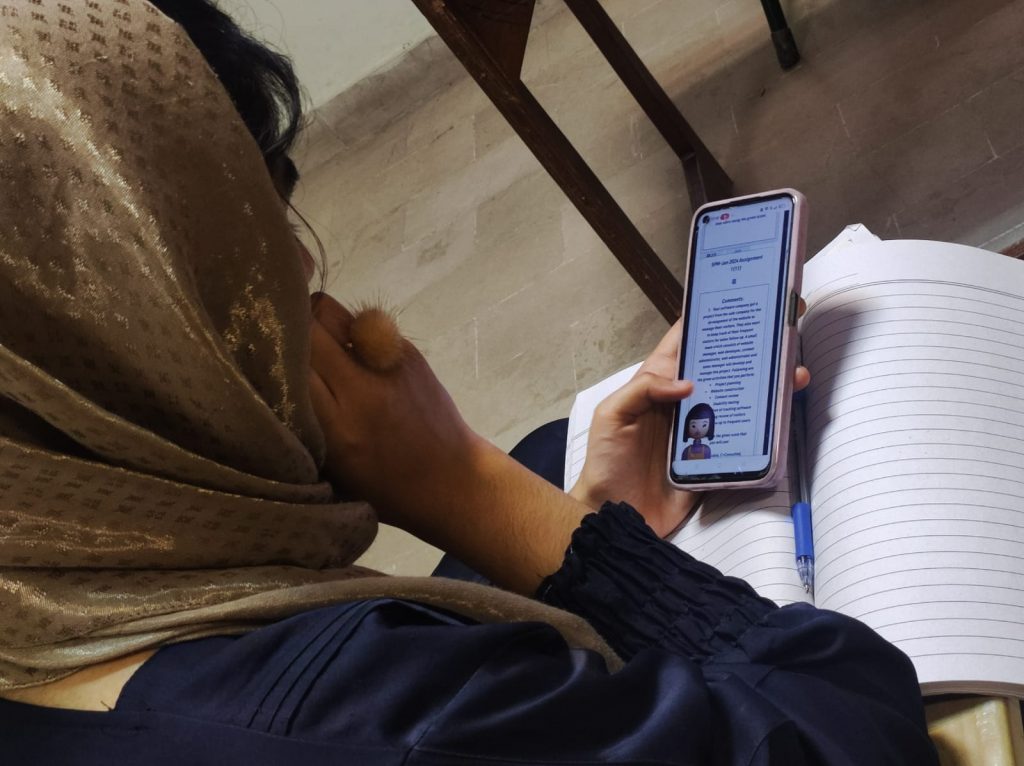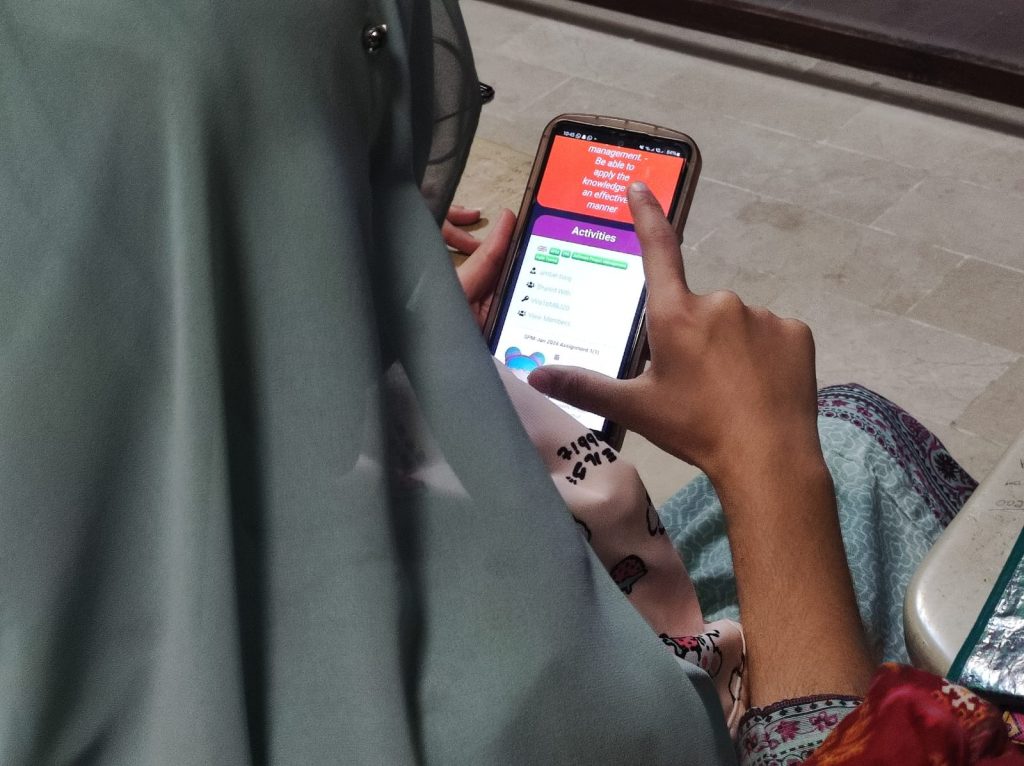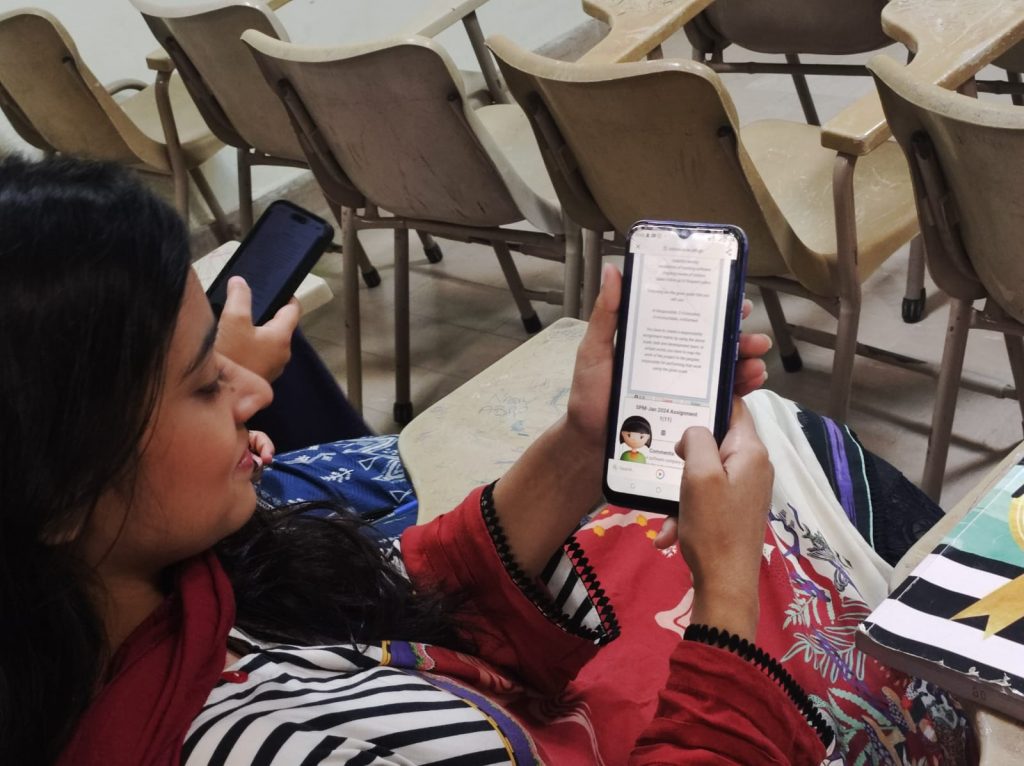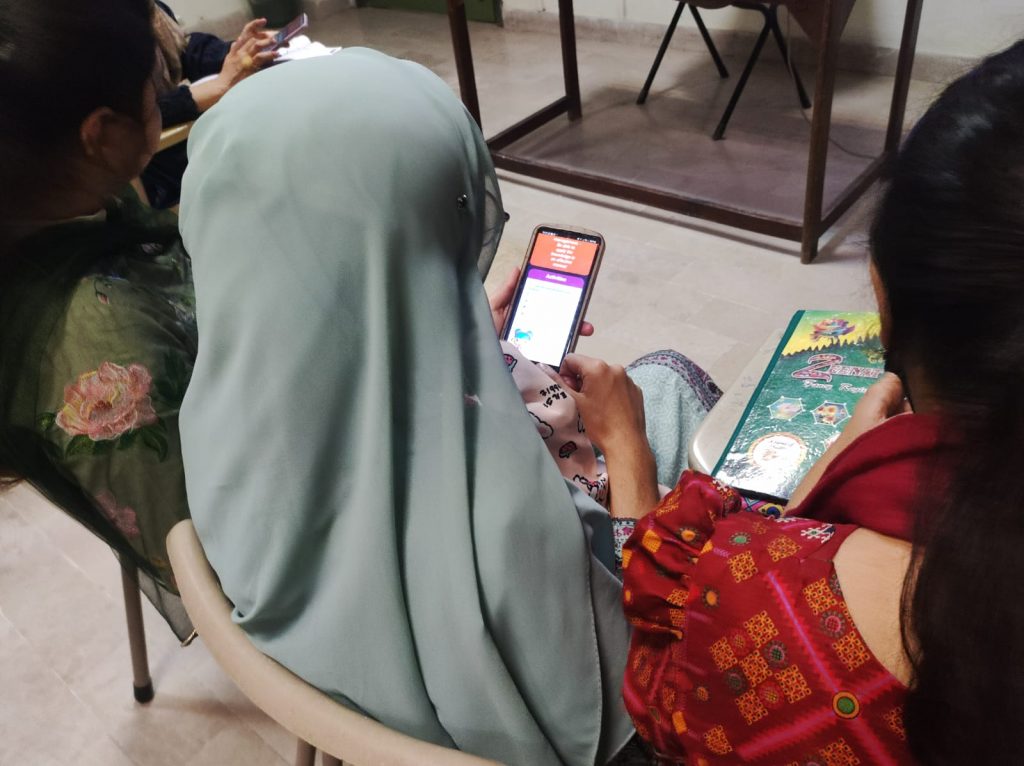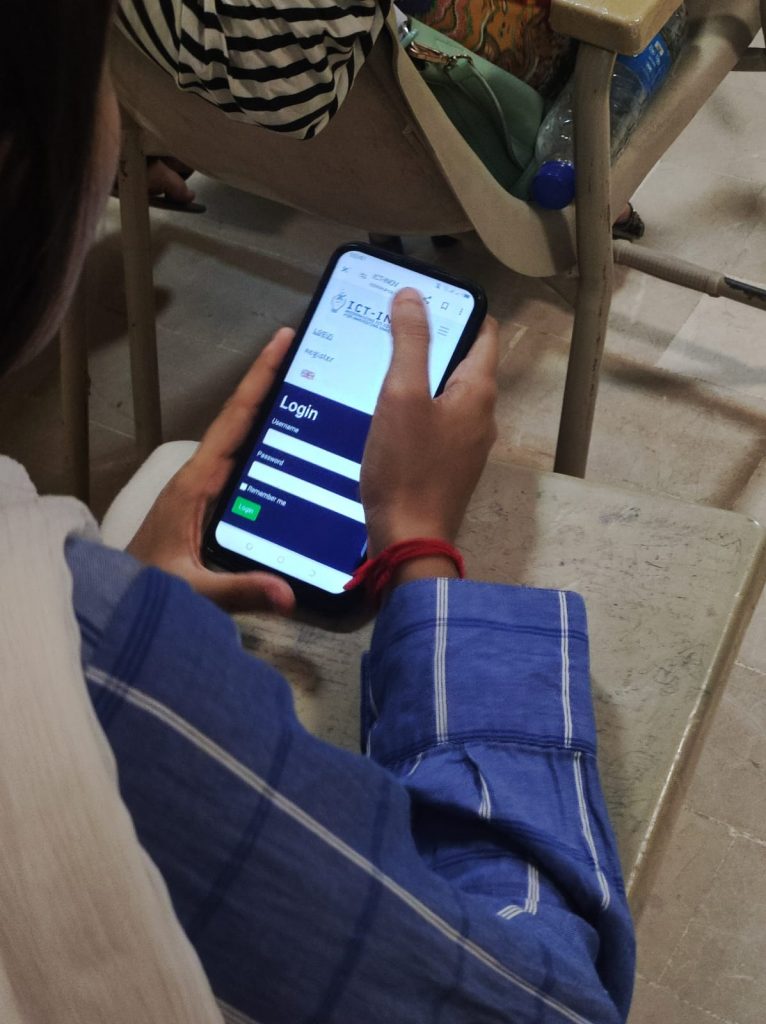
Description of the course
The course introduces the primary concepts of project management related to managing software development projects. Students also become familiar with the different activities involved in software project management. They build knowledge on how to successfully plan and implement a software project management activity and to complete a specific project in time with the available budget.
Description of the participants
This is a compulsory course for Software Engineering and Information Technology students and optional course for Computer Science students. The course is offered in the 4th year of studies in the Department of Computer Science, ISRA University, Hyderabad Pakistan. In January 2023 semester the course was attended by 54 students.
Description of gamified design thinking activities
Students were asked to select a software project of their choice and write the scope and objectives for this project. They were also tasked to develop a work breakdown structure (WBS) for their chosen project. These activities were carried out in groups of students during classes throughout the semester. Students worked in teams of 3 individuals. Work was organized as follows.
Step 1. Problem discovery.
Students were challenged to research the problem area of their interest. Teams engaged in interactive activities to provide background information of their chosen project, including its purpose, vision, and strategic objectives. Activities helped students to develop a shared understanding of the project’s context and set the foundation for the subsequent activities.
Step 2. Problem re-definition.
Students were challenged to redefine the project they chose in the problem discovery phase. They were asked to observe relevant work. They were asked to redefine and document the scope and objectives of their project in their own words.
Step 3. Ideation.
Participants engaged in gamified brainstorming sessions and idea generation games. The gamification elements incorporated into these activities, such as time pressure, scoring systems, and competitive challenges, encouraged students to think creatively, explore diverse perspectives, and generate innovative ideas for the project scope and objectives.
Step 4. Prototyping.
Students developed the work breakdown structure (WES) of the project they defined in the ideation phase. The purpose of the activities was to help students break down the project’s scope and objectives into manageable tasks and sub-tasks. Students participated in interactive exercises and card sorting games. They used collaborative software tools designed to facilitate the creation of a hierarchical WBS.
